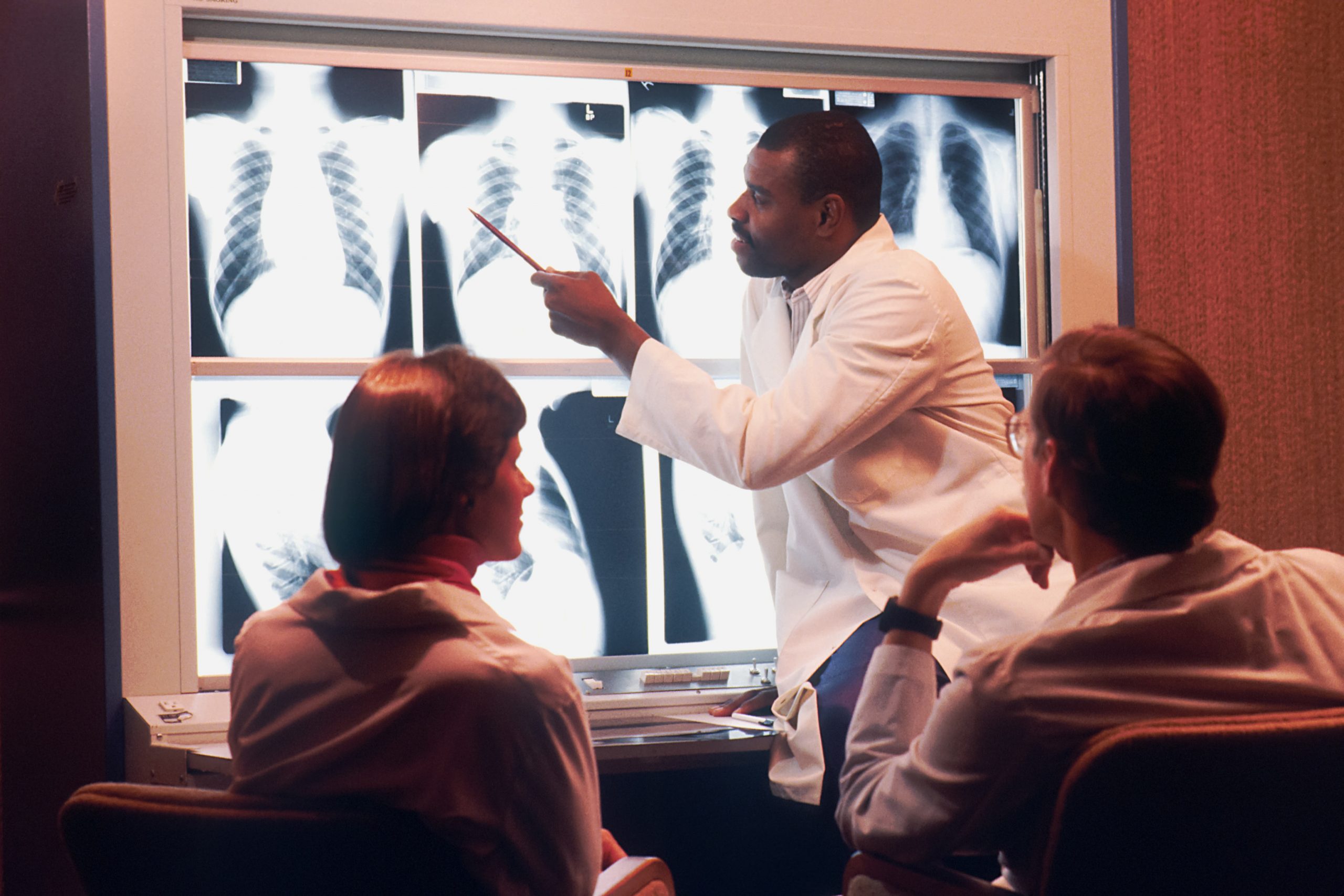Imagine the doctor treating you who is not sure about his diagnosis when studying your radiology findings: Is it cancer or just an inflammation? This decision is very serious. Should this great responsibility be placed in the hands of a single person, regardless of experience? Or is it perhaps better if such an important decision for the patient is made by a team of doctors? Clinics answer this question by establishing a tumor conference.
Tumor conferences — the decisive factor
In most oncology clinics, tumor conferences have been held on a weekly basis for several years. The tumor conference takes place on the premises of a hospital or in virtual presence (online tumor conference). Together they look at the radiological images and other findings of selected cases. The doctor responsible presents the patient’s medical history to the tumor conference with the question of the right therapy decision. The head of the tumor conference then moderates and controls the discussion and records the decision of the panel. At the tumor conferences, experienced physicians from the oncological disciplines meet to discuss the best therapy for patients in an interdisciplinary manner. They are accompanied by resident physicians and practical year students, who can learn something new as part of the discussion. If cancer is particularly complicated, a single doctor can quickly be on the verge of being overwhelmed. Therefore, in many hospitals there are several separate specialist tumor conferences (also called tumor boards) in order to involve experts from different disciplines in the planning of further steps. Joint decisions result in the best individual therapy concepts for patients.
The principle: all for one
It is primarily the patient who benefits from the bundling of competences in the gynecological tumor conference. Tumor conference patients often receive the most modern therapies, sometimes as part of clinical studies. Even if you cannot take part in person for organizational reasons (data protection), everything revolves around your illness during the conference. Rapid, interdisciplinary discussion and consideration of all aspects of the disease and perspectives means that effective therapy can be started more quickly. All the knowledge and experience of the physicians present are thus bundled. The jointly made therapy recommendations are recorded in protocols and subsequently discussed with the patients.
Why is that important?
The tumor conferences are the starting point for effective treatment and the key to the best possible coordinated multi-professional diagnostics. Also and in particular the subsequent therapy of malignant diseases (cancer diseases) is based on the tumor conference. Cancer is a complex and very comprehensive disease. More and more technically highly specialized devices, advances in medicines and scientific knowledge enable a good chance of recovery nowadays. But this whole variety of procedures that support the diagnosis cannot be overseen by a single doctor. There are too many possibilities of imaging, pathological, molecular genetic and other options. For this reason, guidelines in the sense of evidence-based medicine have been included in the tumor conference. This means that discussions and decisions must be based on scientific results and facts. It is also important that the surgeon does not decide on an operation alone, the radiotherapist does not alone decide on radiation and no oncologist simply decides on chemotherapy without having checked together whether the operation and radiotherapy would not be the better alternatives.
Pioneer university medicine
Interdisciplinary tumor conferences have their origins in university medicine. Specialized interdisciplinary cancer centers (so-called Comprehensive Cancer Centers, CCC) have been established. The thinking behind it: Cancer diseases are so complex that several disciplines should be involved. In order to reflect this organizationally, the CCCs developed, which have now become the “standard” for cancer centers. For reasons of transparency and quality, compliance with the therapy recommendations can be tracked through documentation in the clinical cancer register of the respective CCC. The future of cancer medicine for the best treatment lies in multi-professional teamwork.
Social Media
Follow Prof. Jalid Sehouli — Director of the Women’s Clinic at the Charité Virchow-Klinikum on Instagram (https://www.instagram.com/dr.sehouli/ ) to learn more about cancer in gynecology. In small infographics you will be informed about current topics and scientific findings.


